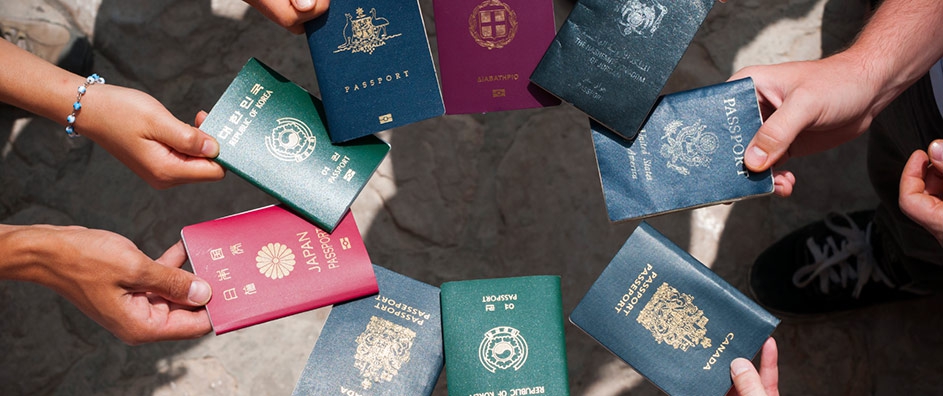The views expressed in our content reflect individual perspectives and do not represent the authoritative views of the Baha'i Faith.
Pride goeth before destruction, a haughty spirit before a fall. – Proverbs 16:18
Remember Nemesis, the Greek goddess of justice and divine retribution against arrogance, from the second essay in this series? Quick recap: she caused Narcissus to fall in love with himself after he rejected the love of Echo; which resulted in his death—and named what we know today as the personality disorder of narcissism. This wonderful Greek myth, like many others from multiple cultures, illustrates the classic saying “Pride goeth before a fall.” Originally from the Book of Proverbs in the Bible, that saying warns us against the inevitable consequences of self-love, narcissism and hubris—the arrogance caused by excessive pride.
So in that context, here’s a fascinating question many thinkers, writers and philosophers have begun to ask lately: If a person can be pathologically narcissistic, what about an entire nation, or a whole culture? Could collective narcissism conceivably exist? Narcissistic mass murderers who feel intensely superior to others seek notoriety by killing innocent people, then killing themselves in a paroxysm of violence—doesn’t that common pattern closely resemble the collective behavior of some countries?
The cultural historian and critic Christopher Lasch wrote about this question in his National Book Award-winning The Culture of Narcissism, which concluded that the United States has now produced a culture which requires constant external validation, just as a narcissist does.
A British historian—Sir Ian Kershaw, one of the world’s recognized experts on Nazi Germany and Adolf Hitler—has also argued persuasively that collective narcissism can and does exist. The author of a two-volume Hitler biography, Kershaw titled the first volume Hubris and the second volume Nemesis, to indicate the rise and fall, not only of Hitler himself, but of an entire society and philosophy.
That philosophy, we all know, exalted one “race”—Aryans—above all others. Its hatred for groups it considered “sub-human,” including the Jews, Gypsies, homosexuals, Baha’is and many others—came directly from its narcissistic pride and arrogance. In the case of Nazi Germany, Kershaw points out, the entire country functioned for a time as a narcissistic entity, with the extreme hubris of racial superiority and “world domination” going before its inevitable fall. Adolf Hitler exemplified that hubris and narcissism, just like many narcissistic rulers and cultures who came before:
There are people who find pleasure in breeding discord, who constantly endeavour to goad their country into making war upon other nations — and why? They think to advantage their own country to the detriment of all others. They send armies to harass and destroy the land, in order to become famous in the world, for the joy of conquest. That it may be said: “Such a country has defeated another, and brought it under the yoke of their stronger, more superior rule.” This victory, bought at the price of much bloodshed, is not lasting! The conqueror shall one day be conquered; and the vanquished ones victorious! Remember the history of the past: did not France conquer Germany more than once — then did not the German nation overcome France?
We learn also that France conquered England; then was the English nation victorious over France!
These glorious conquests are so ephemeral! Why attach so great importance to them and to their fame, as to be willing to shed the blood of the people for their attainment? Is any victory worth the inevitable train of evils consequent upon human slaughter, the grief and sorrow and ruin which must overwhelm so many homes of both nations? – Abdu’l-Baha, Paris Talks, p. 149.
The Baha’i teachings severely reproach the rulers and nations that spread such pain and sorrow, and actually demand that those narcissistic and bloodthirsty politicians and kings fight their own battles among themselves, without involving the rest of us:
O ye kings and rulers, politicians and war-mongers; ye who spend your lives in most exquisite palaces of Italian architecture; ye who sleep in airy, well-ventilated apartments; ye who decorate your reception and dining halls with lovely pictures, sculptures, hangings and frescoes; ye who walk in perfect Elysiums, wreathed in orange and myrtle groves, the air redolent with delicious perfumes and vocal with the sweet songs of a thousand birds, the earth like a luxuriant carpet of emerald grass, bright flowers dotting the meadows and trees clothed in verdure; ye who are dressed in costly silk and finely-woven textures; ye who lie down on soft, feathery couches; ye who partake of the most delicious and savoury dishes; ye who enjoy the utmost ease and comfort in your wondrous mansions; ye who attend rare musical concerts whenever you feel a little disconcerted and sad; ye who adorn your large halls with green festoons and cut flowers, fresh garlands and verdant wreaths, illumining them with thousands of electric lights, while the exquisite fragrance of the flowers, the soft, ravishing music, the fairy-like illumination, lends enchantment; ye who are in such environment: Come forth from your hiding-places, enter into the battlefield if you like to attack each other and tear each other to pieces if you desire to air your so-called contentions. The discord and feud are between you; why do you make us, innocent people, a party to it? If fighting and bloodshed are good things, then lead us into the fray by your presence! – Abdu’l-Baha, Star of the West, Volume 3, p. 117.
All prejudice, racism and nationalism, the Baha’i teachings tell us, comes from collective narcissism, the sick and mistaken notion that one group can and should dominate any other group:
Today the one overriding need is unity and harmony among the beloved of the Lord, for they should have among them but one heart and soul and should, so far as in them lieth, unitedly withstand the hostility of all the peoples of the world; they must bring to an end the benighted prejudices of all nations and religions and must make known to every member of the human race that all are the leaves of one branch, the fruits of one bough. – Abdu’l-Baha, Selections from the Writings of Abdu’l-Baha, p. 277.
Collective narcissism in any group of people—a nation, an economic class, a caste, a tribe, a dominant racial culture—indicates pathology. When one in-group believes itself superior to all other groups, it has a severe spiritual problem, which can only be solved by a new infusion of spiritual power.
















Comments
Sign in or create an account
Continue with Googleor